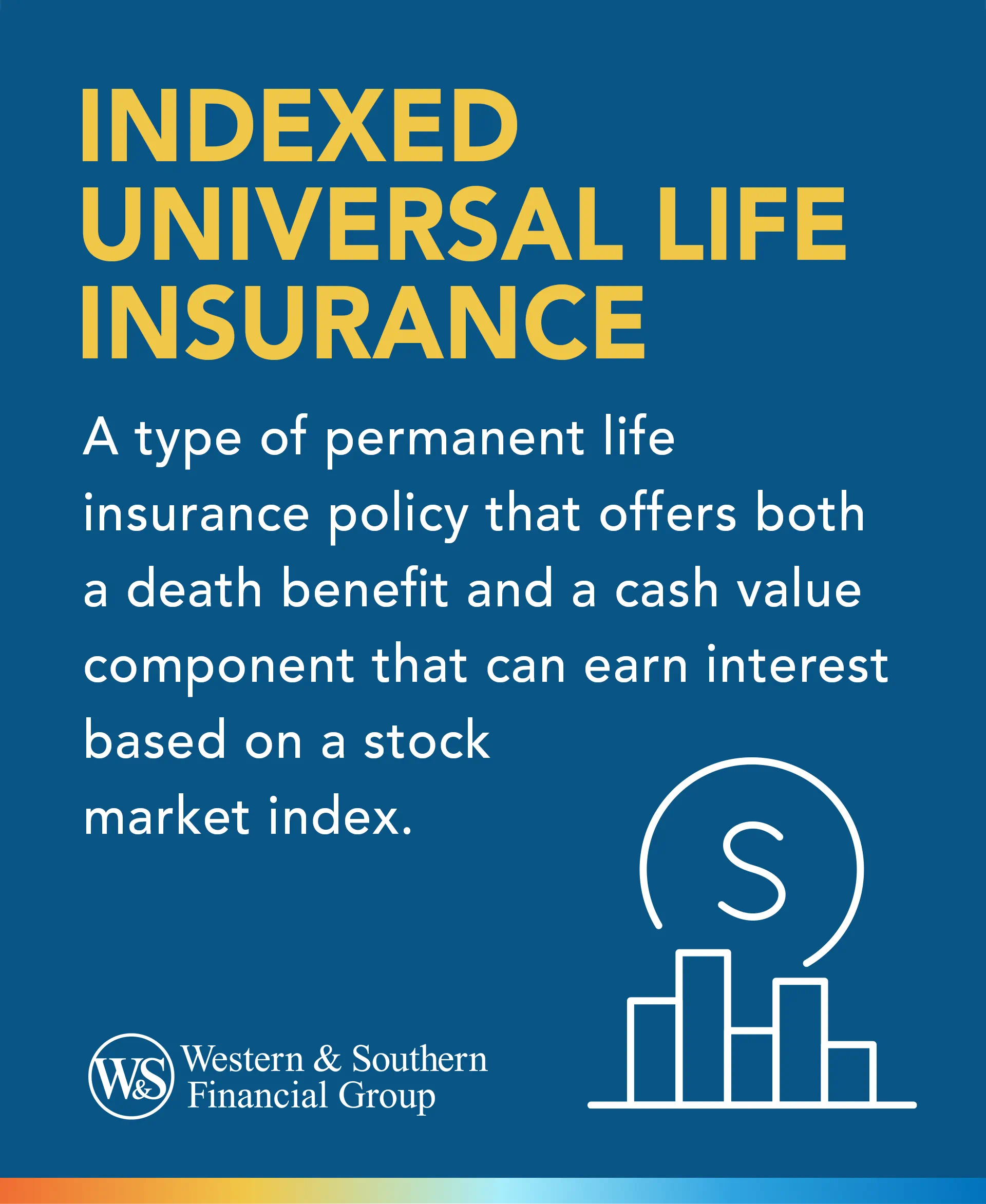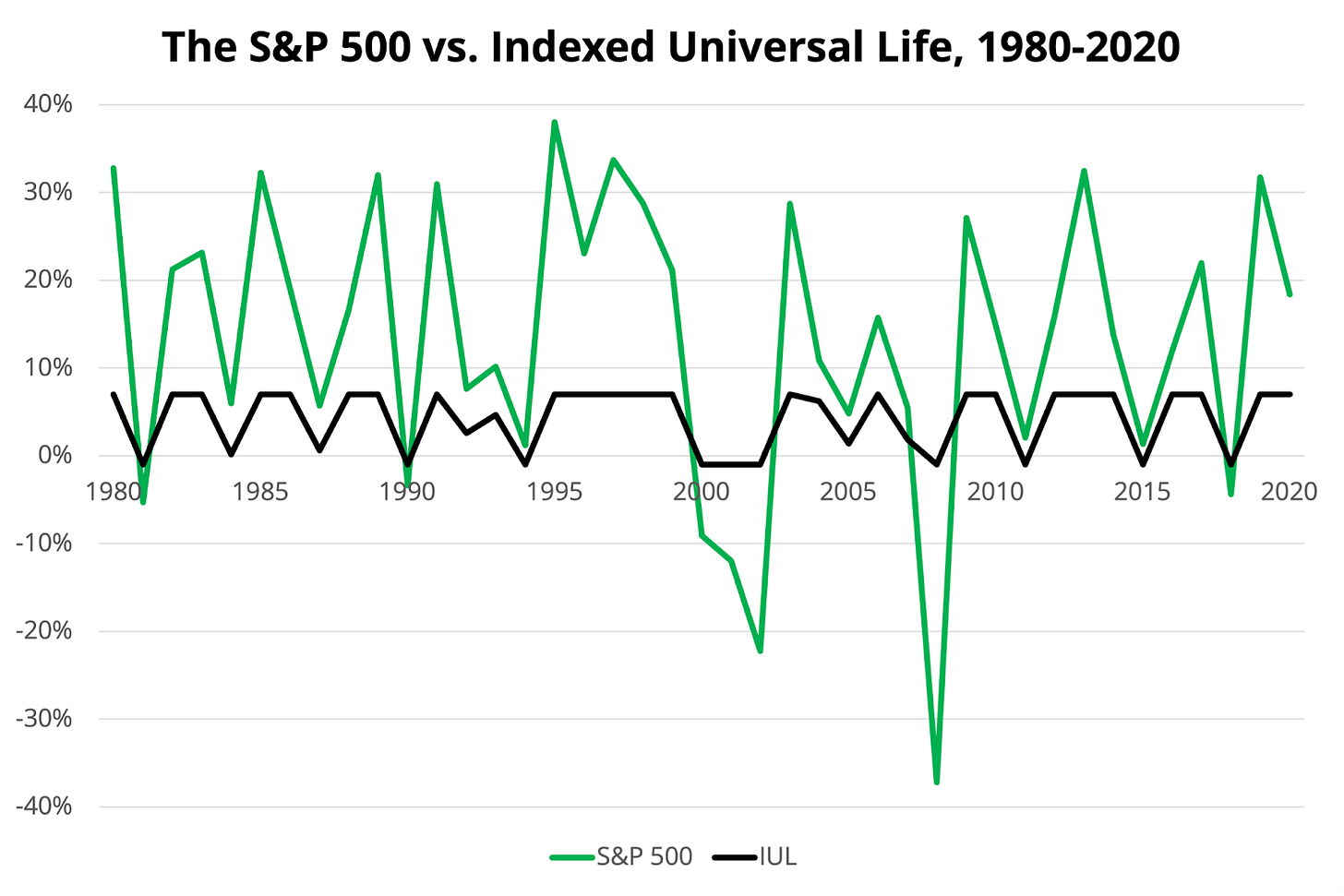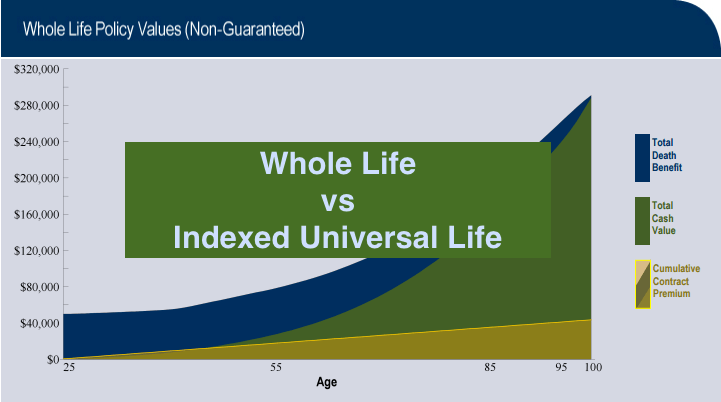All Categories
Featured
Table of Contents
For earning a restricted amount of the index's growth, the IUL will never receive much less than 0 percent rate of interest. Also if the S&P 500 decreases 20 percent from one year to the next, your IUL will not shed any cash money worth as an outcome of the marketplace's losses.

Envision the rate of interest intensifying on a product with that kind of power. Offered all of this information, isn't it possible that indexed universal life is an item that would certainly enable Americans to get term and invest the rest?
A real financial investment is a safety and securities item that undergoes market losses. You are never ever subject to market losses with IUL merely because you are never ever based on market gains either. With IUL, you are not bought the marketplace, yet simply earning interest based on the efficiency of the market.
Returns can grow as long as you proceed to make payments or maintain an equilibrium.
Universal Premium Acceptance Corporation
Unlike global life insurance coverage, indexed universal life insurance coverage's cash worth earns rate of interest based on the performance of indexed stock markets and bonds, such as S&P and Nasdaq., mentions an indexed global life plan is like an indexed annuity that feels like universal life.

As a result of these attributes, long-term life insurance policy can work as an investment and wealth-building tool. Universal life insurance coverage was produced in the 1980s when rates of interest were high. Like various other kinds of permanent life insurance policy, this policy has a cash value. Universal life's cash worth gains interest based upon current money market rates, yet rate of interest prices fluctuate with the market.
Indexed global life policies use a minimum guaranteed rate of interest, likewise referred to as a rate of interest crediting floor, which reduces market losses. As an example, claim your cash value loses 8%. Several companies give a floor of 0%, implying you will not shed 8% of your investment in this situation (universal life vs whole life which is better). Realize that your cash value can decrease even with a flooring because of premiums and other prices.
No Lapse Universal Life Insurance
A IUL is a permanent life insurance policy that borrows from the homes of a global life insurance plan. Unlike universal life, your money worth grows based on the efficiency of market indexes such as the S&P 500 or Nasdaq.
Her job has been published in AARP, CNN Underscored, Forbes, Ton Of Money, PolicyGenius, and U.S. News & Globe Record. ExperienceAlani has examined life insurance policy and pet insurance provider and has actually written various explainers on traveling insurance coverage, credit report, financial debt, and home insurance. She is passionate concerning debunking the complexities of insurance policy and various other personal financing topics to make sure that viewers have the details they need to make the most effective money choices.

Paying only the Age 90 No-Lapse Premiums will guarantee the fatality benefit to the insured's acquired age 90 but will not ensure money value buildup. If your client discontinues paying the no-lapse assurance costs, the no-lapse function will end before the guaranteed duration. If this takes place, additional costs in an amount equal to the shortage can be paid to bring the no-lapse function back active.
Insurance Coverage (IUL) was the finest thing considering that cut bread.
Index Life Insurance Pros And Cons
Initially a short explanation of Indexed Universal Life Insurance. The attraction of IUL is obvious. The premise is that you (nearly) obtain the returns of the equity market, without any type of danger of losing cash. Currently, prior to you diminish your chair poking fun at the absurdity of that statement, you require to understand they make a very persuading argument, a minimum of up until you take a look at the details and realize you don't obtain anywhere near the returns of the equity market, and you're paying much excessive for the guarantees you're obtaining.

If the market decreases, you get the guaranteed return, typically something in between 0 and 3%. Obviously, given that it's an insurance plan, there are additionally the typical expenses of insurance coverage, compensations, and abandonment costs to pay. The information, and the reasons that returns are so dreadful when blending insurance coverage and investing in this certain means, come down to primarily 3 points: They just pay you for the return of the index, and not the dividends.
Iul Insurance Companies
Your maximum return is capped. So if you cap is 10%, and the return of the S&P 500 index fund is 30% (like in 2014), you obtain 10%, not 30%. Some plans only provide a certain percent of the change in the index, say 80%. So if the Index Fund increases 12%, and 2% of that is returns, the change in the index is 10%.
Add all these results together, and you'll find that long-term returns on index universal life are rather darn near to those for entire life insurance policy, favorable, however reduced. Yes, these policies guarantee that the cash value (not the cash that goes to the prices of insurance, naturally) will not shed money, but there is no assurance it will stay up to date with inflation, a lot less grow at the rate you require it to expand at in order to offer your retirement.
Koreis's 16 factors: An indexed universal life plan account worth can never shed cash due to a down market. Indexed global life insurance warranties your account worth, locking in gains from each year, called an annual reset.
In investing, you make money to take threat. If you don't intend to take much threat, don't anticipate high returns. IUL account values grow tax-deferred like a qualified strategy (IRA and 401(k)); mutual funds do not unless they are held within a certified plan. Put simply, this implies that your account worth advantages from triple compounding: You gain interest on your principal, you earn interest on your rate of interest and you earn rate of interest accurate you would certainly or else have paid in tax obligations on the rate of interest.
Universal Life Online
Certified plans are a better selection than non-qualified strategies, they still have problems not offer with an IUL. Investment options are generally restricted to mutual funds where your account value undergoes wild volatility from exposure to market risk. There is a large difference between a tax-deferred pension and an IUL, but Mr.
You purchase one with pre-tax bucks, conserving on this year's tax obligation expense at your low tax price (and will certainly often have the ability to withdraw your cash at a reduced efficient price later) while you purchase the various other with after-tax bucks and will certainly be compelled to pay interest to borrow your own money if you do not desire to surrender the plan.
Then he throws in the classic IUL salesperson scare tactic of "wild volatility." If you despise volatility, there are much better means to decrease it than by buying an IUL, like diversification, bonds or low-beta stocks. There are no constraints on the quantity that might be added each year to an IUL.

That's reassuring. Let's think of this momentarily. Why would the federal government put limitations on exactly how much you can take into retirement accounts? Possibly, just possibly, it's due to the fact that they're such a good deal that the government doesn't want you to conserve way too much on tax obligations. Nah, that could not be it.
Latest Posts
Universal Life Insurance Death Benefit Options
Life Insurance Cost Indexes
New York Universal Life Insurance